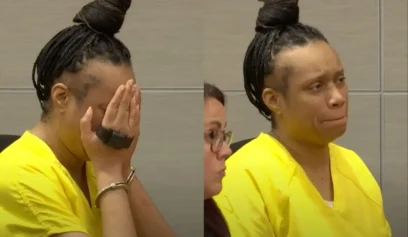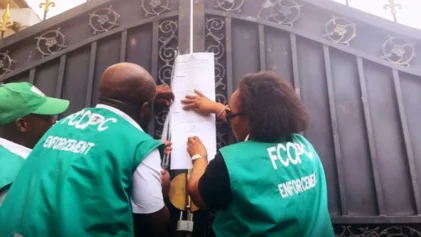A new study out of Indiana University has found that Black police officers are more likely to be disciplined than white cops.
Entitled “The Race Discipline Gap: A Cautionary Note on Archival Measures of Behavioral Misconduct,” the results of the study showed that despite there being no difference between the number of allegations made against Black and white officers, black officers were more likely to have documented cases of misconduct.
“It is impossible to know whether these differences are due to racial bias versus some other unmeasured factors. However, it is noteworthy that the pattern of results is in line with what theories of racial bias would predict and with evidence of racial disparities in punishment in other settings,” the study read.
The study was conducted by six professors at Kelley School of Business at Indiana University. The professors collected archival data from police departments in Chicago, Los Angeles and Philadelphia. They learned from the data that Black officers in Chicago were 105 percent more likely to be disciplined than the white officers. In Philadelphia it was 48 percent.
“Just as bias by police against citizens has been very slow to change, it is likely that any bias within police departments has also been slow to change,” read the study.
They then controlled for the number of allegations of misconduct, finding that Black officers were disciplined 132 percent more often than white officers. The allegations of misconduct included lack of service and verbal or physical assault.
The study’s purpose was to utilize archival data to assess the variation of disciplinary action between Black and white individuals. With past studies showing that Black people are disproportionately liable to experience prison sentences, school suspensions, and arrests, the researchers wanted to consider if there were differences Black employees were made to face in the workplace.
They found that even in well-meaning organizations, inequality in the distribution of disciplinary actions was still an issue that often became entrenched in the company culture.
“Similar to the issues facing the criminal justice and education systems, where racial disparities in punishment are well-documented, organizations face a difficult challenge in detecting and enforcing misconduct,” wrote researchers. “Even when organizations adopt seemingly objective policies for addressing misconduct, it is still possible for certain groups to be disproportionately accused of misconduct and/or disciplined.”
However, researchers advised leaders to be proactive in the applying more equitable rules and regulations to lessen the potential issues that may arise later.
“Just as organizational leaders have implemented policies and procedures to mitigate adverse impact in hiring, they may need to implement checks to ensure that there is no adverse impact in the detection and enforcing of organizational misconduct,” the Kelley professors wrote.
The professors examined archival information from the Citizens Police Data Project, which includes information collected by the Chicago Police Department from 2001 to 2008 and 2011 to 2015, as well as administrative records from the Philadelphia Police Department from 1991 to 1998.
The study also used Los Angeles data from 2003 and 2004. Data obtained from Chicago and Los Angeles found no differences in the rates of allegations between Black and white officers.
Overall, across the data collected from each city, the research established the presence of a racial discipline gap in archival organizational records of behavioral misconduct. Also, organizations face a difficult challenge in identifying and implementing discipline, because certain groups can be unfairly treated even with the most objective of policies on the books.


